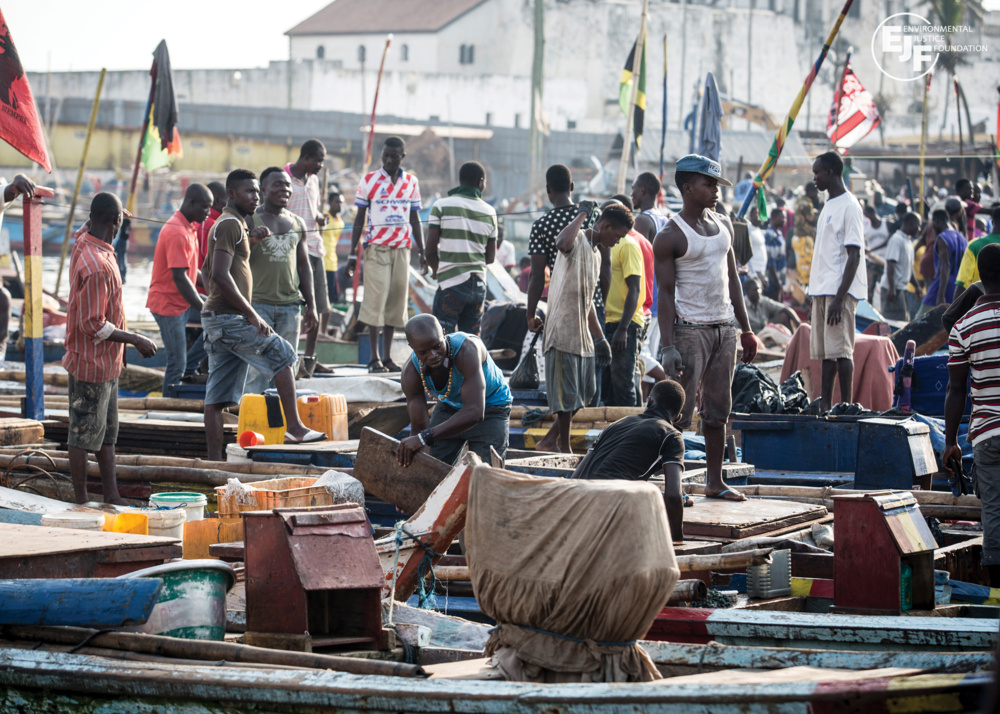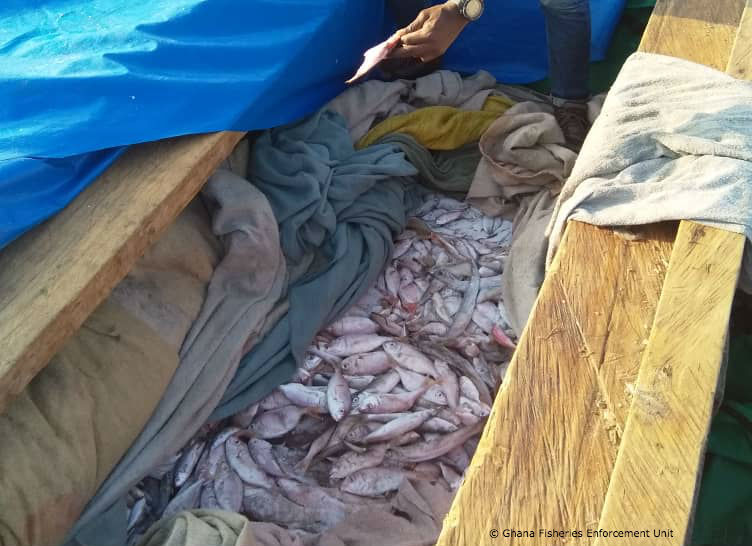
China’s hidden fleet: Illegal practices in Ghana’s industrial fishery
Around 90% of Ghana’s industrial fishing fleet is linked to Chinese ownership, an investigation by the Environmental Justice Foundation (EJF) has revealed. This is despite the fact that Ghana’s laws clearly forbid any foreign ownership or control of vessels flying its flag. The Chinese and Ghanaian governments must now work together to eradicate the illegal fishing practices which are rife in Ghana’s industrial fleet, improve transparency and sanction those contravening ownership laws.
To ensure that the financial benefits from industrial fisheries go directly to Ghana, rather than being sent overseas, Ghana’s Fisheries Act states that these craft cannot be owned, or part owned, by any foreign interest, with the sole exception of tuna vessels.
However, EJF has revealed that foreign companies – overwhelmingly Chinese – operate through Ghanaian ‘front’ companies, using opaque corporate structures to import their vessels and register and obtain a licence. In 2015, 90% of industrial trawl vessels licensed in Ghana were built in China, and 95% were captained by Chinese nationals.
With the balance of control invariably resting with the Chinese investor, such arrangements clearly contravene the purpose of the legislation, if not the letter of the law. The result is a complete lack of transparency as to who is responsible for illegal actions, and who controls and benefits from Ghana’s industrial trawl fleet.
New vessels have continued to arrive from China, despite a moratorium on new industrial trawlers entering Ghanaian waters to address vast over-capacity and severe depletion of fish stocks.
Now the true nature of the situation has come to light, the Ghanaian and Chinese governments must work together for a rapid and robust solution.
Earlier this year, China launched a crackdown on illicit activities of Chinese operators in West Africa, withdrawing subsidies and fishing licences from three Chinese companies involved in illegal fishing in the region. Now it can consolidate this progress in Ghana and thereby demonstrate leadership in combatting the global scourge of illegal fishing.
Together, the two governments need to swiftly identify Chinese ownership in Ghana’s industrial fleet, and ensure any arrangements comply with all fisheries, company and tax laws. To tackle illegal fishing, both governments must thoroughly investigate suspected cases, and impose sanctions tough enough to truly deter offenders.
Crucially, both China and Ghana can secure wide-ranging economic and environmental benefits by making an active commitment to transparency. To do this, lists of all fishing vessels licensed to fish under Ghanaian and Chinese flags should be published online, along with details of all cases of illegal fishing and the sanctions imposed. The ownership of all industrial vessels operating in Ghana, and who actually profits from them, should be public knowledge.
“China is already aware of some problems across its fleet in West Africa, and the government has taken some steps to resolve these abuses,” says EJF’s Executive Director Steve Trent. “With this new information about the Ghanaian fisheries, China can, and should, adopt a leadership role, working with the Ghanaian government to ensure that laws are upheld, and that Ghanaian fisheries are both legal and sustainable. Failure to take such action will see the further declines and the possible collapse of these fisheries, leading to great suffering across coastal communities.”
EJF is also calling upon both governments to end the damaging practice of ‘saiko’ fishing, where industrial trawlers target fish such as the small pelagic species that are a vital staple food for local communities. The catch is then illegally transferred at sea to specially adapted canoes – and having effectively ‘stolen’ these fish from traditional canoe fishers – operators sell them back to the same fishing communities for profit.
Read the report.
SIGN UP FOR OUR EMAILS AND STAY UP TO DATE WITH EJF

